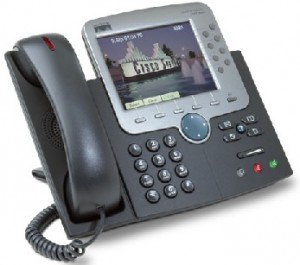VOIP: A Fixed Line Alternative. VoIP or Voice over Internet Protocol is the technology and products that allow telephone calls over IP networks, your internet connection. This can be a good way to slash telephone bills and get rid of your traditional fixed line. VoIP calls can also be made on mobile phones via 3G and 4G networks or via WiFi connections. Many people are now using VoIP as a fixed line alternative.
Debuting in the mid 1990s, VoIP has become an increasingly popular way to avoid costly phone calls. This is because VoIP service providers use the internet to avoid carrier phone networks and due to this they are able to keep their charges for calls very low. How does 1.9 cents a minute for international calls sound? 20 cents per minute calls to Australian mobiles? 200 minutes of local and STD calls per month sound? All for $9.95 a month with no contract. Of course there are more expensive plans that cater for high volume and international calls but more on this in a later article.
VoIP is changing the way we talk. With VoIP you can to slash your phone bills by having your communications use your high speed internet connection. Using VoIP can significantly lower the price of calling friends and family. Most VoIP providers allow you to call anyone who uses the same VoIP service for free.
Traditionally cheap call rates have made VoIP very desirable to many people. VoIP has been and continues to be used for consumer as well as business telephone calls, with most VoIP providers offering consumer and business VoIP plans. Using your VoIP service you can call normal fixed lines, other VoIP telephones, mobile phones, send faxes and make international calls to overseas fixed and mobile phones. Most VoIP providers can port or allow you to keep using your fixed telephone number with them.
VoIP sends your voice as packets of data that include your and the receiver’s IP addresses. These packets of data are are passed back and forth to provide your conversation. These data packets can hold video information as well allowing video calls if you have the correct hardware to allow video calls. When you use VoIP to call another VoIP service, your call will remain on the internet. If you dialling a regular phone or a mobile phone, your call will use your internet connection but will revert back to the relevant phone network to be connected to the person you are calling.
VoIP telephones, although set up to make calls over your internet connection, as opposed to your regular landline phone plug, are no different in looks to your standard home phone.
With most VoIP providers local and national, or STD, calls are charged as a single cost per-call charge, where traditionally STD calls are charged per minute. VoIP international calls are charged in cents per minute. Some VoIP service providers even unlimited international calling plans to some countries.
Many VoIP providers offer features such as caller ID, message bank, and call forwarding to another nominated phone number. Three way calling, where you can conference call with two other people, is another handy VoIP feature.
In order to have VoIP you need to contact a VoIP provider and sign up to a VoIP package. There are many deals on VoIP packages with VoIP providers being able to provide aVoIP phone cheaply and the calling costs and monthly service fees are far lower than many other fixed or landline options. Most VoIP service accounts come with a landline phone number which allows other people to call you.
When you have your account set up with a VoIP provider and your VoIP telephone you simply a matter of plug it in and start making calls and saving money when dialling friends, family in Australia or overseas.
Do you use VoIP? Let us know how you find VoIP and which provider you use by leaving a comment below. If you found this article useful please let us know by leaving a comment or liking this article.

 Follow
Follow
